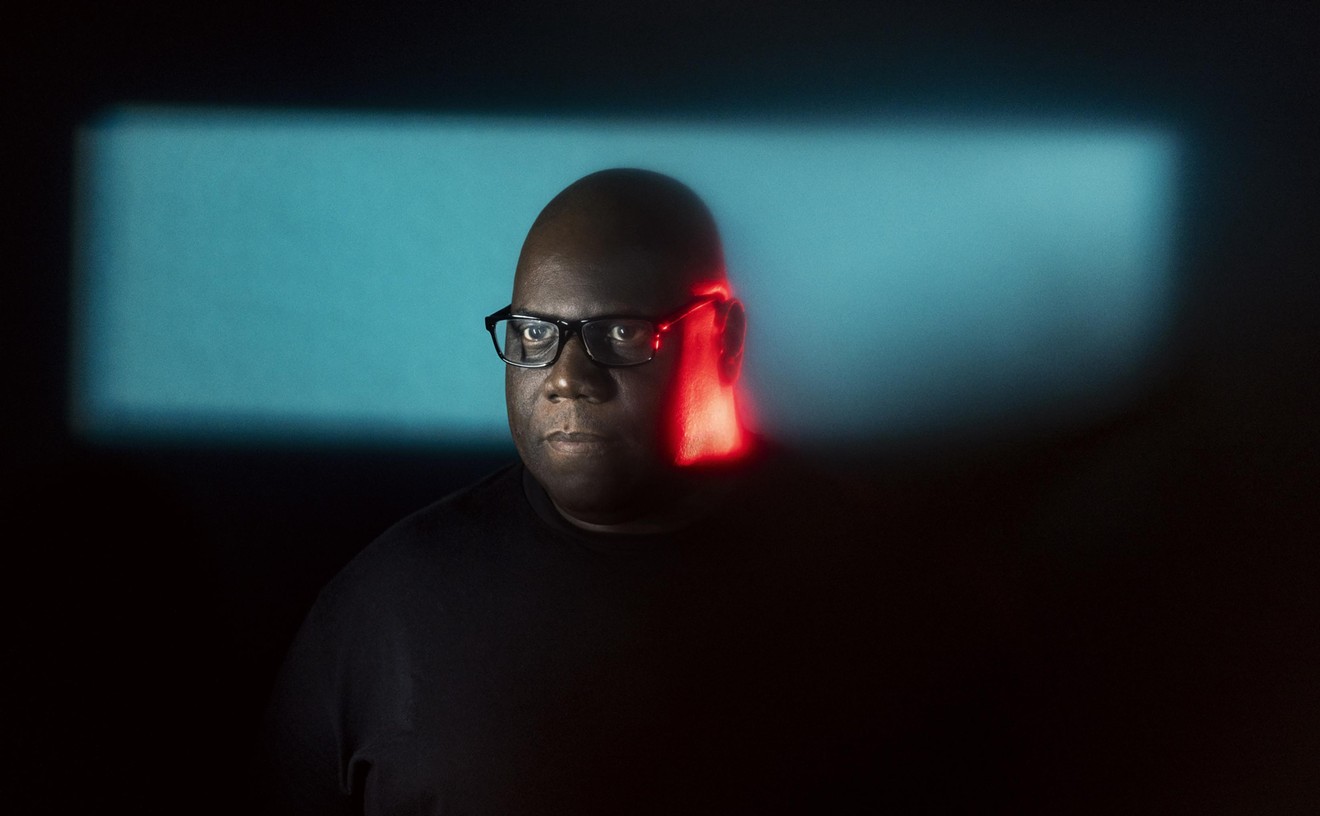"In radio, you rarely have anything last forever. Radio stations flip formats. That's the nature of the business," says former Party 93.1 jock Buster Altschul. The lights in his office at the Cox Communcations building in Fort Lauderdale are turned off, but he isn't sitting in the dark because he's depressed. To the contrary, Buster, as he's affectionately known, fits perfectly the image of what you think your favorite on-air hosts look like (but usually don't): handsome and built, he's charismatic and optimistic, perpetually buzzing on a natural high.
"Honestly, I was on a rock station in Boston, WBCN-FM 104.1. And this is a helluva playlist. They're playing the rock I grew up to," he says, laughing as he cites Everlast and Alter Bridge as examples of what you can expect to hear. It's difficult to not burst out laughing, too, eager to share his in-joke, until you realize he's actually serious. "We're planning on staying extremely active and dominating this market," he adds. A few dark recriminations, however, manage to sneak through.
Party 93.1 was one of a handful of dance music stations in the country. The small number seems astounding considering the genre's lasting popularity, if only in terms of "live" performance (i.e., nightclubs) rather than record sales. But commercial radio is an extremely conservative business, an industry dominated by media conglomerates. It's surprising that an all-dance channel even made it on the air in such a climate. "Bottom line is, advertisers don't understand dance music. It's hard enough to get listeners to understand it," says Buster.
"It's disappointing because my passion is dance music. Everything that I have dedicated myself to in the last five years, since I've been in Miami, is how to be creative in ways to expose people to it," rues Buster.
Local dance music fans loved to hate Party 93.1. They ridiculed the station for playing the same ten songs, ignoring the underground progressive house and trance cuts you hear in nightclubs instead of blowsy "house" remixes of Top 40 hits by Christina Aguilera ("Dirrty" got a lot of airplay), T.A.T.U., and Britney Spears ("Toxic" was a favorite, too). But Buster defends the station's relatively limited playlist, arguing, "We weren't programming it for the dance music people. We were programming it for people who have never been to a nightclub before, who have never heard this music before."
Of all the critics, though, he singles out the cantankerous forum posters on www.clubplanet.com and www.cooljunkie.com. "When we went off the air, it really hurt to [read] the stuff on the boards, like, öAbout fucking time,'" he says. "The big aspect about that was, these guys aren't thinking big enough. It's a blow to our music. It hurts the artists we love."
The best thing about Party 93.1 was its mere existence, which validated Miami as an important dance market. Its staff worked tirelessly to promote the station, sponsoring events at nightclubs such as Space and crobar; throwing massive, rave-style parties with Paul Van Dyk and Tisto as headliners; and inviting local DJs such as Markus Schulz and George Acosta to host mix shows after 10:00 p.m. On Sunday nights, it would feature specialty shows by British superstar DJ Paul Oakenfold. It emphasized how strong the city's club scene really is, despite its frequently shallow audience and promoters who don't know how to draw a crowd without a B-movie celebrity on hand.
As one of the faces of Miami club culture, mostly thanks to his association with Party 93.1, Buster is now seemingly without a major platform. But he touts his fledgling A3TV, a video dance show that broadcasts on TV from 11:00 p.m. nightly on cable in South Florida (including channel 30 in Miami), as a place where he can continue to publicize his ideas. Meanwhile, Cox Communications, responding to the outpouring of support Party 93.1 received after its demise, plans to revive it as a streaming online station (www.party931.com) sometime in April.
Then there's 93 Rock, billed as "South Florida's Pure Rock." A look at its sample playlist reveals more brawny rawk than a WWE episode: Soundgarden's "Black Hole Sun," Papa Roach's "Getting Away with Murder," and Pearl Jam's "Jeremy." Even that ol' chestnut, Guns N' Roses' "Sweet Child O' Mine," will be getting spins. Meanwhile, indie rock fans will have to content themselves with macho heroes such as Nirvana, the White Stripes, and Radiohead (as in the "Creep" era, not Kid A).
Luckily, claims Buster, the same staff that made Party 93.1 a cultural, if not exactly aesthetic, success will be on hand for 93 Rock. It could help bring together Miami's local rock scene -- which, frankly, needs a lot more exposure than our dance music community ever did.










